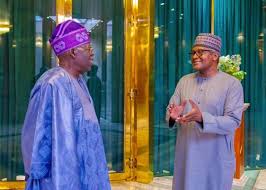President Bola Ahmed Tinubu on Tuesday evening received billionaire industrialist and Chairman of Dangote Group, Alhaji Aliko Dangote, at the Presidential Villa in Abuja for a private meeting, underscoring the administration’s continued alignment with private sector players in driving economic growth, particularly in the oil and gas industry.
Although the purpose and outcome of the closed-door engagement were not officially disclosed, it came on the heels of Tinubu’s earlier visit in June to the Dangote Refinery and Petrochemicals complex in Lagos, which has a refining capacity of 650,000 barrels per day. The refinery is billed to begin supplying petroleum products directly to end users from August 15, 2025, bypassing traditional distributors—a move that has sparked reactions across industry circles.
Earlier in the day, President Tinubu had welcomed participants to the West African Refined Fuel Conference through his official X handle, emphasizing Africa’s need to assert itself more forcefully within global energy systems and reduce dependence on external pricing structures.
“Africa can no longer be a price taker. We must set transparent benchmarks that reflect our true value and protect our economies,” Tinubu posted.
He further revealed that Nigeria is working with regional partners to develop a unified energy market across Africa.
“From refining to regulation and trade flows, we’re building a market that rewards production and secures energy for our people,” the President said.
At the same event, Alhaji Dangote presented a paper titled “Building an African Refinery Hub: Prospects and Challenges,” in which he spoke candidly about the barriers to refinery development on the continent.
He identified rent-seeking behaviour as a major challenge that plagues Africa’s petroleum value chain, beyond the frequently cited issues of poor infrastructure.
“Besides poor infrastructure, our biggest problem lies in rent-seeking throughout the petroleum value chain across Africa,” Dangote said.
He lamented that the downstream sector has for long been susceptible to corrupt practices, patronage, and resistance to change by entrenched interests.
“When a refinery disrupts this setup, it challenges powerful forces determined to resist and maintain the status quo,” he added.
Dangote’s remarks echo recent industry tension following his refinery’s announcement to begin direct distribution of Premium Motor Spirit (PMS) and diesel using a new fleet of 4,000 Compressed Natural Gas (CNG)-powered tankers.
The Natural Oil & Gas Suppliers Association of Nigeria (NOGASA) has warned that its members may shut down operations if the refinery proceeds with its plan to bypass traditional suppliers and depots. NOGASA President, Benneth Korie, said this shift would disrupt the sector and render many players, particularly transporters and intermediaries, jobless.
The Tuesday meeting between Tinubu and Dangote, although private, is seen by observers as a critical moment in aligning the government’s energy policy with the evolving dynamics of the petroleum supply chain, as Nigeria positions itself as a central player in Africa’s energy independence agenda.
